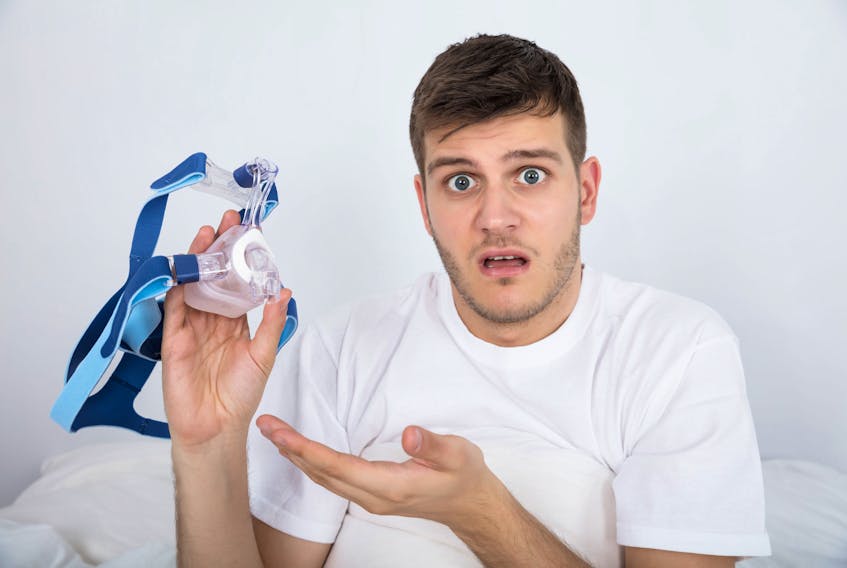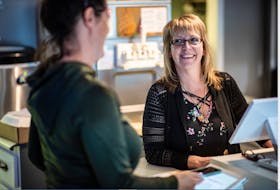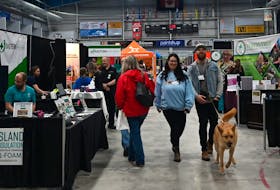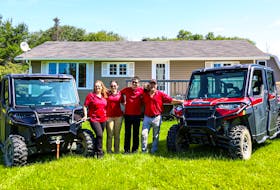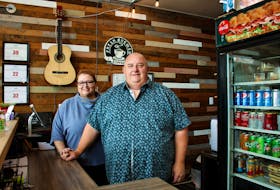It’s never been so important to wash your hands and sanitize high-touch surfaces, but one of the most intimate items you use nightly might actually be teeming with bacteria.
According to Jaime Williams, Registered Respiratory Therapist with Respiratory Therapy Specialists Inc., the COVID-19 pandemic has served as a good reminder that some folks may be slacking a bit when it comes to cleaning their Obstructive Sleep Apnea equipment — like their CPAP (continuous positive airway pressure) machine and all its components.
“Hygiene is something that’s always been important, but it’s been highlighted more since COVID-19 began,” says Williams, who is also the regional director of Respiratory Therapy Specialists Inc. “Everyone’s increased their handwashing and is more mindful of sanitizing surfaces, and they’re also more aware of the importance of keeping their CPAP machine, mask and tubing clean, too — especially where COVID-19 is a respiratory illness.”
If you don’t clean your CPAP equipment regularly, you could be exposing yourself to bacteria, mold, and/or a musty odor. You also might develop allergy symptoms and put yourself at increased risk for sinus infections and pneumonia. (It's also not good for your CPAP machine itself, which could experience mineralization, void your device warranty and break down prematurely.)
How often are you supposed to clean all of the components of your CPAP machine, and what’s the easiest way to tackle the job? Let’s take a closer look ...
WIPE YOUR CPAP MASK DAILY
You brush your teeth when you wake up, and it’s equally important to clean your CPAP mask, too. By cleaning it when you first wake up in the morning, it’s always ready whenever bedtime rolls around.
Williams says many RTS patients like the convenience of cleaning their CPAP mask with a specialized wipe. Contour CPAP Mask Wipes are pre-moistened and make it easy to remove any dirt and residue that builds up on the mask throughout the night.
If you don’t use wipes, you can clean your CPAP mask daily by disconnecting it from the machine and tubing, disassembling it (separating the headgear, cushion and frame), washing it gently with warm water and dish soap, rinsing the mask with drinking-quality water and leaving it on a towel to air dry.
A CPAP machine’s mask should be replaced every six months (twice a year).
FULLY CLEAN YOUR CPAP MACHINE’S TUBING ONCE A WEEK
Your CPAP tubing doesn’t need to be cleaned daily, like your mask, but it’s important to clean it once a week. Disconnect it from your mask and machine, run warm water and dish soap through the tubing, rinse it with drinking-quality water and hang it to dry. Be sure to replace the tubing entirely every six months.
(OPTIONAL) CLEAN YOUR DEVICE USING ULTRAVIOLET LIGHT
After a regular soap-and-water cleanse, another way to deep-clean your components is by using the power of ultraviolet (UV) light. Smith says many RTS patients like using a product called the Lumin CPAP Cleaner.
The automated device cleans and sanitizers your CPAP mask, hose, and reservoir without needing to take it apart every day. It also doesn’t require water or any messy chemicals, so it avoids condensation and ensures your equipment remains completely dry.
“You put your CPAP mask in the device, and the light works to kill 99.9 per cent of germs and bacteria,” says Registered Respiratory Therapist Kristy Smith, who is the Nova Scotia area manager with Respiratory Therapy Specialists Inc. (RTS).
REPLACE YOUR CPAP’S FILTERS AS REQUIRED
How often your CPAP machine’s filters need to be changed depends on the model you own. But because the filters are on the back of the machine (and aren’t visible on a day-to-day basis), Smith says patients often forget about them entirely.
“Some machines have a prompt to change their filter, but others don’t, so it’s a good idea to set a reminder,” suggests Smith. “You could add it to your calendar or put in your phone so you never forget to change your filter on time.”
“HOW DO I KNOW IF I HAVE OBSTRUCTIVE SLEEP APNEA?”
While many Atlantic Canadians are suffering from pandemic fatigue, it’s likely some are actually plagued by Obstructive Sleep Apnea — a potentially life-threatening condition that occurs when a person repeatedly stops breathing while they sleep due to a collapse in their airway.
Obstructive Sleep Apnea symptoms include snoring, restless sleep, excessive daytime sleepiness, drowsiness while driving, poor concentration, high blood pressure, and gasping or choking at night.
Left undiagnosed and untreated, Obstructive Sleep Apnea can result in motor vehicle collisions, decreased quality of life, deteriorating mental health, diabetes, impotence, high blood pressure, stroke or cardiac arrest.
GETTING TESTED FOR OBSTRUCTIVE SLEEP APNEA IS EASY
If you think you may have Obstructive Sleep Apnea, there’s no need to get a doctor’s referral. Simply schedule a visit with one of RTS’s Registered Respiratory Therapists so they can arrange for a Level 3 Sleep Study. You won’t need to go into a lab — just bring a portable monitor home for one night to capture data while you sleep.
Once the results are interpreted by a local doctor who's a board-certified sleep specialist, they’ll be sent to your family doctor to discuss with you. If you have Obstructive Sleep Apnea, you’ll be directed to the RTS team to begin a therapy program, like a CPAP (continuous positive airway pressure) machine.
How’s your CPAP hygiene these days? Current CPAP users can receive 15 per cent off purchases of masks and accessories (including hygiene products) now through the end of December 2020 by visiting their local Respiratory Therapy Specialists Inc. To find a location nearest you, visit rtsatlantic.com or call 1-877-449-0202.

